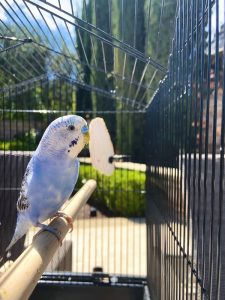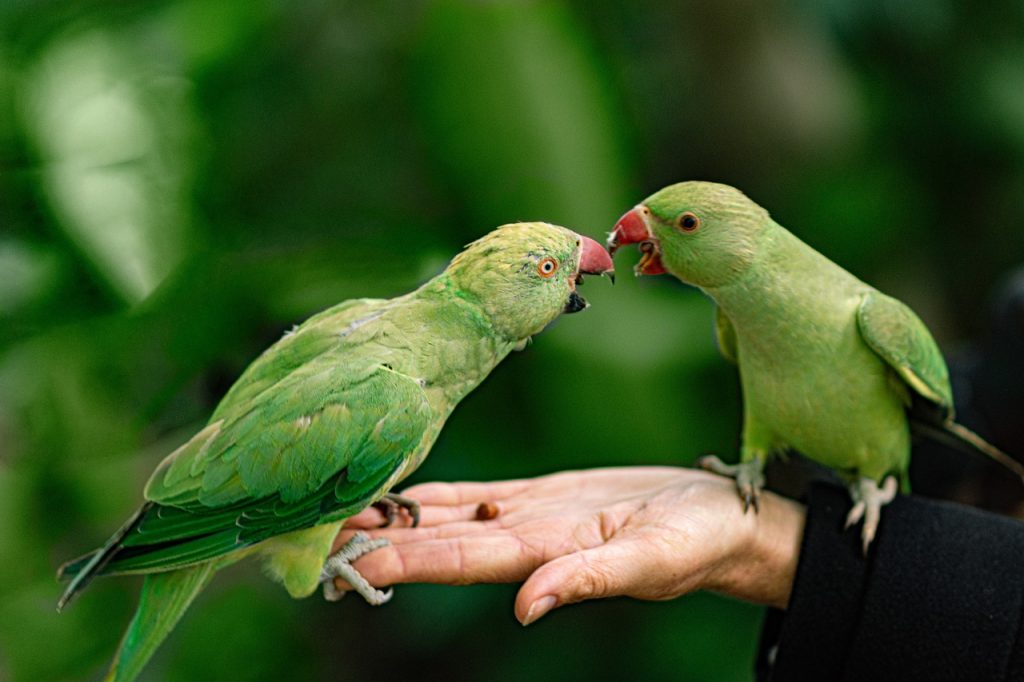
Is a pet bird for me?
Birds are enchanting and beautiful creatures that amuse us with their curious behavior. They have increased in popularity over the last few decades. Many of them live in our homes without major problems, others suffer tremendously from an unnatural lifestyle. By instinct, birds were designed to soar the sky, gaze from tree branches, and often flock with their own kind.
Dogs and cats have adapted, through many generations, to being part of our family. The same may not be said about birds. Even birds that are raised in captivity still possess the wild bird instinct.
Test this statement by allowing yours to be free — it will fly away.
Before you decide to have a pet bird such as a parrot, please consider the following:
- Birds bite and chew by nature- many will bite you too.
- Parrots are messy.
- Parrots by nature scream. Some will learn human words and phrases but extensive years of training will only show some ability to reason. Many will never talk.
- Parrots are social and need daily attention.
- Some parrots never bond with humans.
- Parrots need to be served a varied diet regularly.
- Parrots are sensitive to household products.
- Parrots require a financial commitment with cages, toys, and veterinary visits.
- Large parrots can live up to 80 years and may outlive you.
Another common habit of bird owners is to collect multiple pet birds of different species. This adds major stress to the bird group as they are confined in small, abnormal space. That is very unnatural unless you possess a vast aviary space.
You should consider the following before obtaining a bird as a pet:
Even with the best care, confinement in cages can lead to neurotic behavior, excessive screaming, feather plucking, self-mutilation, and other destructive habits. Who really wants a neurotic screaming bird? Exotic bird sanctuaries across the country are overwhelmed with hundreds of unwanted and cage abused birds, while thousands more languish deprived and ignored in their cages because their “owners” have lost interest in them. I often see the same bird passed from home to home as the neurotic behavior increases. Others are simply released to fend for themselves; most of these birds will perish because winter will ensue upon a tropical bird.
Birds do not generally require vaccinations, but routine health evaluation for weight loss and other signs of impending illness should be performed every six months. Birds, as flock animals, are symptom hiders until they have a severe illness. While this is a good trait so the flock will not reject them, it is a terrible trait when caretakers are trying to detect illness. Large birds, larger than a cockatiel should have yearly blood profiles. Often blood profiles are the first indication of illness.
Owning a bird is a serious responsibility and should not be taken lightly. Before getting a bird, be sure your family is ready for this commitment. Veterinarians are on the side of the birds. Keep them alive, healthy, and satisfied in an excellent, natural environment.

